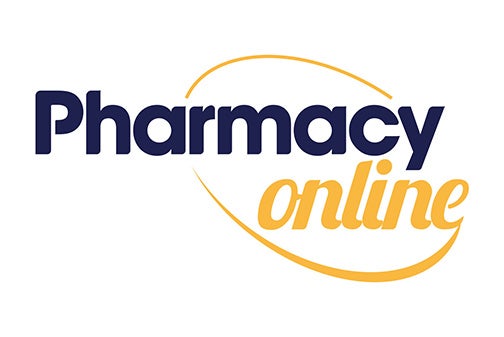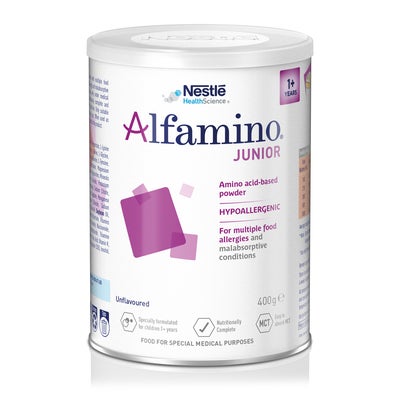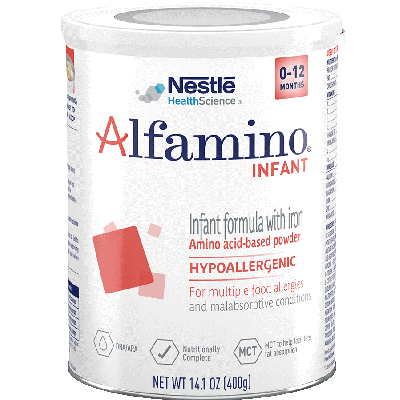Alfamino® Junior- A PBS listed amino acid based formula for children > 12 months of age with severe cow’s milk protein allergy, eosinophilic oesophagitis and/or food intolerance.
To purchase online - Australian Prescription holders (Authority Script) only, click below:

You will be redirected to Pharmacy Online – please read their terms and conditions as Nestlé Health Science is not liable for our partner sites. Subject to availability.
| Energy Density | 1 kcal/ml | 4.2 kJ/ml |
| Energy Distribution | ||
| Protein - 12% | (100% free amino acids) | |
| Carbohydrate - 50% | ||
| Fat - 38% | ||
| Osmolality | 590mOsm/kg water | |
| Water Content | 840ml/1000ml
(218g of powder with 840ml previously boiled water) |
|
| No Gluten Containing Ingredients
Nutritionally Complete |
- Eosinophilic oesophagitis (EoE)
- Multiple food protein allergy
- Severe intestinal malabsorption
Nutritional products for food allergy
BREASTFEEDING IS BEST FOR BABIES.
Nestlé Health Science has a range of paediatric products that can assist in maximising nutritional intake across a wide range of conditions including food allergies.
ALFAMINO® is an Infant Formula Product for Special Dietary Use. This product is not suitable for general use. ALFAMINO® Junior is a food for special medical purposes specifically formulated for the dietary management of children with multiple food allergies (including cow's milk allergy) and malabsorptive conditions. Products must be used under medical supervision.
Breast milk is best for baby and provides ideal nutrition. Good maternal nutrition is important for preparation and maintenance of breastfeeding. Introducing partial bottle feeding could negatively affect breastfeeding and reversing a decision not to breastfeed is difficult. Professional advice should be followed on infant feeding. Infant formula should be prepared and used exactly as directed or it could pose a health hazard. The preparation requirements and cost of providing infant formula until 12 months of age should be considered before making a decision to formula feed.
Mothers should be encouraged to continue breastfeeding even when their infants have cow’s milk protein allergy. If a decision to use an infant formula for special dietary use is taken, it must be used under medical supervision.



